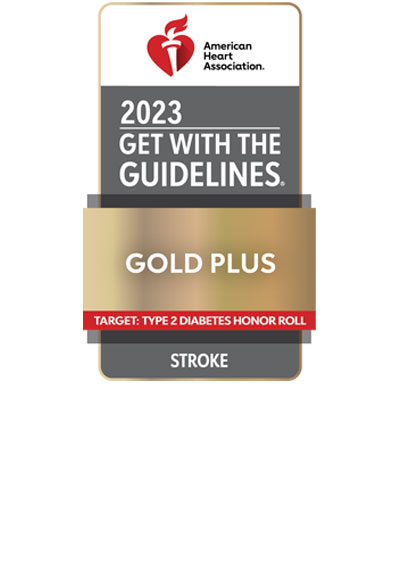Most Children & All Teens Can Get COVID-19 Vaccines
CDC recommends everyone ages 5 years and older get a COVID-19 vaccine to help protect against COVID-19.
COVID-19 Vaccines
| Authorized For | Pfizer-BioNTech | Moderna | J&J/Janssen |
|---|---|---|---|
4 years and under | No | No | No |
5-11 years old | Yes | No | No |
12-17 years old | Yes | No | No |
18 years and older | Yes | Yes | * |
*Everyone ages 18 years and older should get a booster does of either Pfizer-BioNTech or Moderna (mRNA COVID-19 vaccines) at least 2 months after receiving the Johnson & Johnson's Janssen (J&J/Janssen) vaccine in most situations.
Widespread vaccination for COVID-19 is a critical tool to best protect everyone from COVID-19 and COVID-19 related complications.
Everyone ages 12 years and older should get a COVID-19 booster shot.
Find a COVID-19 Vaccine for Children 5 Years & Older
COVID-19 Vaccines at San Antonio Regional Hospital
San Antonio Regional Hospital is a San Bernardino County Vaccination Center. For more information about San Antonio Regional Hospital vaccines visit:
www.sarh.org/covid-19-resources/vaccine
- The federal government is providing the COVID-19 vaccine free of charge to all people living in the United States, regardless of their immigration or health insurance status.
- Check with your child’s healthcare provider about whether they offer COVID-19 vaccination.
- Check your local pharmacy’s website to see if vaccination walk-ins or appointments are available for children.
Why Children and Teens Should Get Vaccinated for COVID-19
COVID-19 in Children
There are approximately 28 million children between the ages of 5 and 11 years old in the United States, and there have been nearly 2 million cases of COVID-19 within this age group during the pandemic. COVID-19 can make children very sick and cause children to be hospitalized. In some situations, the complications from infection can lead to death.
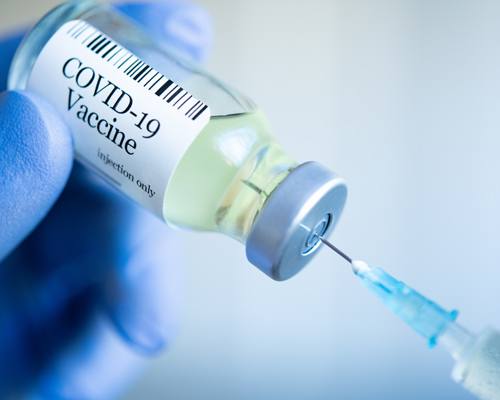
Children are as likely to be infected with COVID-19 as adults and can
- Get very sick from COVID-19
- Have both short and long-term health complications from COVID-19
- Spread COVID-19 to others, including at home and school
As of mid-October 2021, children ages 5 through 11 years have experienced more than 8,300 COVID-19 related hospitalizations and nearly 100 deaths from COVID-19. In fact, COVID-19 ranks as one of the top 10 causes of death for children ages 5 through 11 years.
Children who get infected with COVID-19 can also develop serious complications like multisystem inflammatory syndrome (MIS-C)—a condition where different body parts become inflamed, including the heart, lungs, kidneys, brain, skin, eyes, or gastrointestinal organs. Since the pandemic began, more than 2,300 cases of MIS-C have been reported in children ages 5 through 11 years. Children with underlying medical conditions are more at risk for severe illness from COVID-19 compared with children without underlying medical conditions.
Help Protect Your Child, Your Family and Others
Getting a COVID-19 vaccine can help protect children ages 5 years and older from getting COVID-19.
- Vaccinating children can help protect family members, including siblings who are not eligible for vaccination and family members who may be at increased risk of getting very sick if they are infected.
- Vaccination can also help keep children from getting seriously sick even if they do get COVID-19.
- Vaccinating children ages 5 years and older can help keep them in school and help them safely participate in sports, playdates, and other group activities.
Help protect your whole family and slow the spread of COVID-19 in your community by getting yourself and your children ages 5 years and older vaccinated against COVID-19.
Protect Unvaccinated Children
Unvaccinated children ages 2 years and older should wear a mask in public spaces and around people they don’t live with. Learn more about protecting unvaccinated family members.
COVID-19 Vaccines Are Safe for Children & Teens
Benefits of COVID-19 Vaccination
Before recommending COVID-19 vaccination for children, scientists conducted clinical trials with thousands of children and no serious safety concerns were identified. The FDA gave the Pfizer-BioNTech COVID-19 vaccine emergency authorization to
use in children ages 5-15 years old and full approval to use in people ages 16 years and older. Learn more about the process of developing, authorizing, and approving COVID-19 vaccines.
The benefits of COVID-19 vaccination outweigh the known and potential risks. Get a COVID-19 vaccine for children ages 5 years and older as soon as you can.
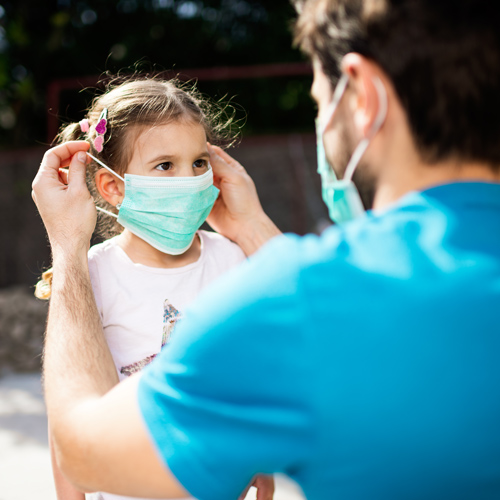
COVID-19 vaccines are being monitored for safety with the most comprehensive and intense safety monitoring program in U.S. history. CDC monitors the safety of all COVID-19 vaccines after the vaccines are authorized or approved for use, including the risk of myocarditis in children ages 5 through 11 years.
- Your child may get a COVID-19 vaccine and other vaccines, including flu vaccine, at the same time.
- Serious health events after COVID-19 vaccination are rare.
- Cases of myocarditis (inflammation of the heart muscle) and pericarditis (inflammation of the outer lining of the heart) have been reported after Pfizer-BioNTech COVID-19 vaccination of children ages 12–17 years. These reactions are rare; in one study, the risk of myocarditis after the second dose of Pfizer-BioNTech in the week following vaccination was around 54 cases per million doses administered to males ages 12–17 years.
- In general, adolescents ages 12 through 17 years have a higher risk for myocarditis than children ages 5 through 11 years. During clinical trials, no cases of myocarditis occurred in children ages 5 through 11 years who received the COVID-19 vaccine.
- A severe allergic reaction, like anaphylaxis, may happen after any vaccine, including COVID-19 vaccines, but this is rare.
- Your child cannot get COVID-19 from any COVID-19 vaccine, including the Pfizer-BioNTech vaccine. Learn more about how mRNA vaccines, like the Pfizer-BioNTech vaccines, work.
- There is no evidence that COVID-19 vaccines cause fertility problems.
COVID-19 Vaccine Dosage and Administration for Children & Teens
- Unlike many medications, COVID-19 vaccine dosage does not vary by patient weight but by age on the day of vaccination.
- Adolescents ages 12 years and older receive the same dose of Pfizer-BioNTech COVID-19 vaccine as adults.
- Children ages 5 through 11 years receive an age-appropriate dose of the Pfizer-BioNTech COVID-19 vaccine.
- The Pfizer-BioNTech COVID-19 vaccine for children ages 5 through 11 years has the same active ingredients as the vaccine given to adults and adolescents. However, the Pfizer-BioNTech vaccine for adults and adolescents cannot be used for children ages 5 through 11 years.
- Your child will need a second shot of the Pfizer-BioNTech vaccine three weeks after their first shot.
- If a child turns from 11 to 12 years of age in between their first and second dose, the second dose should be the Pfizer-BioNTech vaccine for people 12 years and older. However, if the child receives the Pfizer-BioNTech COVID-19 vaccine for children ages 5 through 11 for their second dose, they do not need to repeat the dose.
Teens Ages 12 and Older Can Get a Booster Shot
Teens ages 12 to 17 years old should receive the Pfizer-BioNTech COVID-19 booster shot at least 5 months after completing their Pfizer-BioNTech COVID-19 primary series.
Currently, a booster shot is not recommended for children younger than 12 years old.
Preparing Children and Teens for Vaccination
COVID-19 Vaccine Experience
The experience of getting a COVID-19 vaccine will be very similar to the experience of getting routine vaccines. Use our tips to support your child before, during, and after routine vaccinations when they get a COVID-19 vaccine.
- Talk to your child before vaccination about what to expect.
- It is not recommended you give pain relievers before vaccination to try to prevent side effects.
- Tell the doctor or nurse about any allergies your child may have.
- To prevent fainting and injuries related to fainting, your child should be seated or lying down during vaccination and for 15 minutes after the vaccine is given.
- After your child’s COVID-19 vaccination, you will be asked to stay for 15–30 minutes so your child can be observed in case they have a severe allergic reaction and need immediate treatment.
After Your Child's COVID-19 Vaccination
Possible Side Effects
Your child may have some side effects, which are normal signs that their body is building protection.
On the arm where your child got the shot:
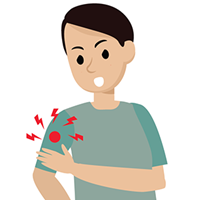
- Pain
- Redness
- Swelling
Throughout the rest of their body:
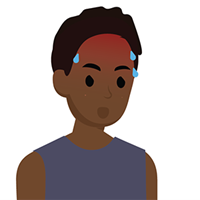
- Tiredness
- Headache
- Muscle pain
- Chills
- Fever
- Nausea
These side effects may affect your child’s ability to do daily activities, but they should go away in a few days. Some people have no side effects and severe allergic reactions are rare. If your child experiences a severe allergic reaction after getting a COVID-19 vaccine, vaccine providers can rapidly provide care and call for emergency medical services, if needed.
Ask your child’s healthcare provider for advice on using a non-aspirin pain reliever and other steps you can take at home after your child gets vaccinated. In general, aspirin is not recommended for use in children and adolescents less than 18 years of age. Placing a cool, damp cloth on the injection site can help with discomfort.
Teens ages 12 and older should get a booster shot. So far, reactions reported after getting a booster shot were similar to those after the two-dose primary series. Fever, headache, fatigue and pain at the injection site were the most commonly reported side effects, and overall, most side effects were mild to moderate. However, as with the two-dose or single-dose primary series, serious side effects are rare, but may occur.
Information gathered from CDC website -
https://www.cdc.gov/coronavirus/2019-ncov/vaccines/recommendations/children-teens.html


